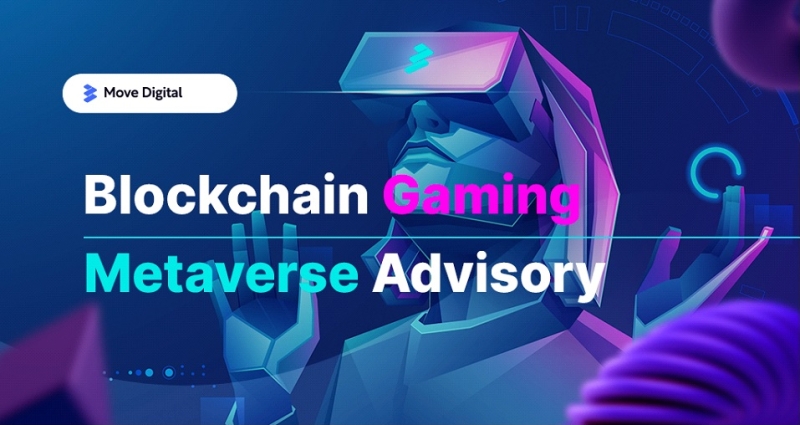Asian and UK Enterprises Ramp Up Blockchain Adoption

Beyond Blockchain #7: Companies tied to cars, plastics, and solar panels manufacturing move towards DLT adoption
One of the biggest myths about blockchain and distributed ledger technologies (DLTs) is that they are costly and inefficient. Those who share this stance are likely unfamiliar with permissioned and private blockchains which are finding increased adoption among enterprises. Unlike their public counterparts, these in-house systems are energy-efficient, incorporate access control layers, and have found applications in many industries.
This week’s Move Digital Beyond Blockchain series provides clear examples of how companies in Asia and the United Kingdom are finding simple but efficient DLT use cases. These DLT implementations are improving their products while addressing key operational bottlenecks.
Car Manufacturer MG to Store Driving Data for New Cars on Blockchain
MG is a car manufacturing outlet owned by multi-billion dollar Chinese automobile company SAIC. MG is planning the release of its new SUV car model, MG Astor, which will be commercialized in India. The new model will include a simple blockchain-based solution for recording driving data in a digital passport.
The solution will track and immutably store data such as speed, mileage, gas consumption, and maintenance services. Car owners can then choose to share this data with insurers when seeking to secure fair rates for their vehicles.
The same information applies when determining the resale value of a car, with blockchain-based data removing the possibility of car owners providing falsified or unreliable data to potential buyers. Indian blockchain startup Koinearth is MG’s partner for the new project, which is set to be the first of its kind in the country when it goes live in September.
Japan’s Marubeni Employs Blockchain to Tackle Illegal Dumping of Solar Panels
Tokyo-headquartered Marubeni Corporation is one of the largest power projects and infrastructure companies in Japan. Marubeni collaborated with Next Energy and the Japanese Ministry of Environment for a pilot project that incorporated blockchain technology.
The partners will use blockchain to track the performance of recycled solar panels on a newly proposed trading site. The site will reduce the chances of companies illegally dumping the estimated 800,000 tons of solar panels that are due for replacement by mid 2030s.
With blockchain-verifiable insights into solar panel efficiency, buyers can feel more confident about purchasing recycled solar panels while sellers can get more value for their money. Marubeni and Next Energy will likely profit through revenue generated from the planned trading site.
IBM Japan and Mitsubishi Will Use Blockchain to Lower Carbon Footprint
IBM Japan announced a new partnership with Mitsubishi Heavy Technologies for a new blockchain-based solution called CO2NNEX. The solution uses blockchain technology to monitor the capture and reuse of Carbon Dioxide (CO2).
Capturing CO2 at the point of emission allows for such captured energy to be stored underground or re-used for industrial operation. Using blockchain to trace the volumes of CO2 collected and distributed allows for greater transparency between companies that distribute CO2 and those who buy it. Mitsubishi will provide carbon capture equipment while IBM Japan provides blockchain tracking tools. The partners will pilot a marketplace for buyers and sellers by 2022.
TotalEnergies to Save on Taxes by Using Blockchain to Monitor Plastic Recycling
Energy company TotalEnergies (formerly known as Total) is among the many companies struggling to meet the new and stricter regulations imposed by UK authorities regarding plastic recycling. The company produces fuel, natural gas, lubricants, and other special fluids often sold using plastic containers.
Last week, TotalEnergies partnered with plastic chemical recycling company Recycling Technologies and blockchain traceability company Circulor for a new DLT solution for tracing Hard To Recycle Plastics (HTRP). The new product is called TrackCycle and will allow the tracking of plastics from where the waste is produced until it is recycled into polymers.
The company will thus make better decisions regarding production and incentivizing distributors that abide by sustainable recycling standards. The company will also lower tax filings, since the UK is now imposing taxes on plastic packaging that has less than 30% of recycled materials. Notably, the project was funded by the UK government’s innovation agency Innovate UK.
Mosaic Insurance Partners DXC for DLT-based Insurance Technology Solution
Lloyd’s insurance syndicate partner Mosaic Insurance teamed up with DXC (previously Hewlett Packard Enterprise) to roll out a new insurance technology solution that uses blockchain, machine learning, and AI to underwrite specialty insurance risks.The use of blockchain will allow for collated data to be shared instantly between insurance brokers, syndicates, regulators, and reinsurers.
The blockchain also serves as a source of truth for all partners to trust that information hasn’t been tampered with. Speaking about the benefits of adopting the new solution, Mitch Blaser, Mosaic’s Co-Founder and Co-CEO, noted that it would streamline their underwriting process while also allowing “for better decision-making and lower expense ratios.”
Who’s Investing in Blockchain?
New York Community Bank Invests in blockchain startup, Figure: New York Community Bank (NYCB) has become the latest community bank to invest in provenance blockchain startup Figure. The bank will use the startup’s blockchain to improve its mortgage business, increase financial inclusion, and offer faster payments to customers. As part of the partnership, both partners will also invest in the JAM FINTOP Blockchain Fund, which targets the deployment of blockchain infrastructure and business.
Taiwan-based blockchain startup, XREX Raises $17M in Series A: XREX is a blockchain-based fintech company focused on emerging markets, developing tools to help merchants save on currency conversion costs, especially getting access to the US dollar. In a recent funding round, the company raised $17m with participation from CDIB Capital Group, SBI Investments, ThreeD Capital, and a host of other venture capital firms.
Improve Your Business Operations. Find Out How Blockchain Can Help
At Move Digital, our mission is to help enterprises innovate with blockchain technology. By evaluating your company’s objectives, our team of experts can find key areas where DLT adoption can save costs and make your business operations highly efficient. If you need help with defining or executing a blockchain strategy, feel free to send us an email.








